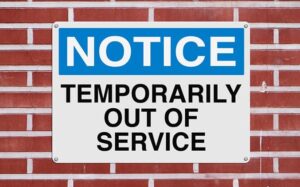The Ultimate Guide to Heavy Duty Exhaust Fans: Benefits & Uses
In industrial and commercial settings, proper ventilation is crucial for maintaining air quality, regulating temperature, and ensuring a safe working environment. One of the most effective solutions for this is using heavy duty exhaust fans. These powerful ventilation systems help remove stale air, eliminate pollutants, and enhance overall air circulation. Whether you operate a factory, warehouse, or large commercial kitchen, investing in the right exhaust fan is essential.
What Are Heavy Duty Exhaust Fans?
Heavy duty exhaust fans are high-powered ventilation devices designed to remove heat, fumes, smoke, dust, and airborne contaminants from large spaces. Unlike regular residential exhaust fans, these units are built to withstand harsh conditions, operate for extended periods, and handle significant airflow volumes. They are commonly used in industries such as manufacturing, agriculture, automotive, and food processing.
Key Benefits of Heavy Duty Exhaust Fans
1. Improved Air Quality
One of the primary advantages of heavy duty exhaust fans is their ability to maintain fresh and breathable air. In industrial settings, airborne pollutants, chemical fumes, and dust particles can pose serious health risks to workers. A high-powered exhaust fan helps remove these contaminants and create a healthier workplace.
2. Temperature Regulation
Industrial facilities often generate excess heat from machinery, equipment, and production processes. Without proper ventilation, this heat buildup can make working conditions unbearable. Heavy duty exhaust fans help expel hot air and replace it with cooler, fresher air, leading to a more comfortable and productive workspace.
3. Moisture and Mold Prevention
Excess humidity can lead to mold growth, equipment corrosion, and structural damage. Exhaust fans help regulate humidity levels by removing excess moisture from the air, preventing damage to sensitive equipment and materials.
4. Energy Efficiency
By improving air circulation and reducing the need for additional cooling systems, heavy duty exhaust fans can contribute to lower energy costs. Instead of relying solely on air conditioning, businesses can use exhaust fans to enhance ventilation naturally.
5. Enhanced Safety
In environments where hazardous gases, smoke, or flammable materials are present, proper ventilation is essential for preventing potential health hazards and fire risks. Exhaust fans help eliminate dangerous fumes and ensure a safer workplace.
Applications of Heavy Duty Exhaust Fans
Heavy duty exhaust fans are versatile and can be used in various industries and commercial settings, including:
- Industrial Warehouses: To expel dust, fumes, and excess heat generated by heavy machinery.
- Manufacturing Plants: To maintain clean air quality and remove harmful pollutants.
- Commercial Kitchens: To ventilate smoke, grease, and cooking odors efficiently.
- Agricultural Facilities: To regulate air circulation and humidity in barns, greenhouses, and poultry farms.
- Garages and Workshops: To remove exhaust fumes and maintain a well-ventilated workspace.
Choosing the Right Heavy Duty Exhaust Fan
When selecting an exhaust fan, consider the following factors:
1. Size and Airflow Capacity
Measure the size of your space and determine the necessary cubic feet per minute (CFM) rating to ensure effective ventilation. Larger areas require fans with higher CFM ratings.
2. Motor Power and Durability
Look for a fan with a robust motor designed for continuous operation. Industrial settings require durable, high-performance motors that can withstand heavy use.
3. Mounting Options
Exhaust fans come in wall-mounted, ceiling-mounted, and ducted options. Choose the type that best suits your space and ventilation needs.
4. Noise Levels
While industrial fans tend to be louder than residential ones, some models offer noise-reduction features to ensure a quieter work environment.
5. Energy Efficiency and Controls
Opt for models with energy-saving features, variable speed settings, and automatic controls to optimize performance and reduce operational costs.
Installation and Maintenance Tips
Proper installation is key to ensuring optimal performance. Here are some tips:
- Position the fan in a location where it can effectively pull out stale air.
- Ensure there is an adequate fresh air intake to balance the ventilation system.
- Regularly clean the fan blades and vents to prevent dust and debris buildup.
- Check for wear and tear on motor components and replace damaged parts promptly.
Conclusion
Investing in heavy duty exhaust fans is essential for maintaining air quality, temperature control, and safety in industrial and commercial environments. With their ability to remove pollutants, excess heat, and moisture, these powerful ventilation systems contribute to a healthier and more productive workspace. By selecting the right model and ensuring proper maintenance, businesses can optimize their ventilation systems for long-term efficiency and performance.














Post Comment